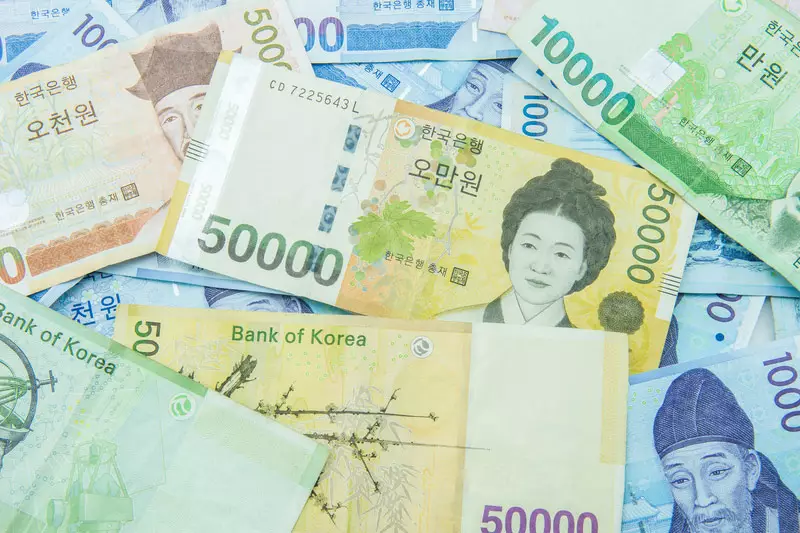The Asian currency markets experienced a notable downturn on Monday, primarily driven by the South Korean won, which took the brunt of investors’ concerns amid escalating political instability in South Korea. The pressures on Asian currencies are multifaceted, with geopolitical tensions in the Middle East also contributing to a generally cautious sentiment among investors. As the global economic landscape remains fragile, particularly with an important inflation report anticipated this week from the United States, participants in the financial markets are weighing their options carefully.
The South Korean won stood out as the worst-performing currency in the region, registering nearly a 10% decline against the U.S. dollar so far in 2024. This fall is alarming, especially as the won’s USD/KRW pair rose almost 1% on Monday, nearing a two-year high. Last week’s events were pivotal; a criminal investigation against President Yoon Suk Yeol due to a failed attempt to impose martial law sent shockwaves through the political landscape, exacerbating fears among investors. Despite surviving an impeachment vote, the turmoil surrounding Yoon has raised serious doubts about his governance, with the head of his own party suggesting that resignation might be imminent.
The political crisis in South Korea is particularly alarming considering the country’s importance to the East Asian economy. As such instability persists, the risks of a wider economic fallout loom large, impacting investor confidence and influencing the values of related currencies.
Ongoing geopolitical tensions, particularly in the Middle East, have further unsettled market dynamics. Recent reports of Syrian rebel forces ousting President Bashar al-Assad and claims that he and his family have sought asylum in Moscow compounded the unease. The situation complicates an already fragile geopolitical scenario, with Israeli forces reportedly active in Syria. This heightened state of conflict can erode appetite for riskier assets, causing investors to seek refuge in safer investments, thereby exerting downward pressure on Asian currencies.
While the South Korean won struggled, other Asian currencies reflected a mixed bag of performances. The Taiwanese dollar saw a minor increase of 0.3% against the U.S. dollar, and the Singapore dollar inched up by 0.1%. Meanwhile, the Australian dollar remained largely stable as market participants awaited a crucial decision from the Reserve Bank of Australia concerning interest rates. Analysts generally predict the RBA will maintain the current rate, although signs of a declining economy suggest a potential shift in the central bank’s stance.
In India, the rupee recorded a slight uptick of 0.1%, as the Reserve Bank of India took measures to enhance liquidity by cutting a key bank reserve ratio. This comes amid concerns about a slowing economy, showcasing how central banks are responding proactively to economic downturns.
Conversely, the Japanese yen showed minimal fluctuations as investors continued to analyze economic growth data, with indications revealing that while Japan’s economy grew more than anticipated in the third quarter, it fell short of earlier gains.
The U.S. dollar, on the other hand, experienced only slight increases as market participants centered their expectations around the impending consumer price index (CPI) data, to be released on Wednesday. Insights garnered from this report are expected to illuminate the Federal Reserve’s future interest rate policies. Given the backdrop of a robust nonfarm payroll report from the previous week, analysts are forecasting a potential interest rate cut of 25 basis points by the Fed.
As Asian currencies grapple with both local political crises and broader geopolitical tensions, market sentiment remains precarious. The next few days will be critical, as insights into the U.S. inflation situation could cascade through global markets, impacting investor behavior and currency valuations alike. As such, stakeholders in the financial markets must remain vigilant, carefully navigating the complexities of an ever-evolving economic environment.

